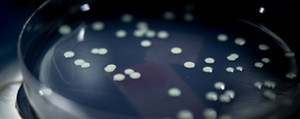Prevention of Hospital-Acquired Legionellosis
More hospitals are facing the dilemma of Legionella outbreaks as they discover the drinking water is the source. This article provides an update of the use of PCR detection for water, the use of CFU/ml vs distal site positivity as an indicator of risk, risk assessment, neurologic complications in patients, and new laboratory tests for patient management
Read More
Legionnaires' Disease
Legionnaires' disease is a severe, often lethal, form of pneumonia. It's caused by the bacterium Legionella pneumophila found in both potable and nonpotable water systems. Each year, an estimated 56,000 to 113,000 people are infected with the Legionella bacteria in the United States. See What's New for the latest on Legionnaires' disease.
In Our Opinion
Legionnaires' Disease in Children
by Yael Shachor-Meyouhas
Legionella has not been a prominent pathogen in children with pneumonia. The discovery of Legionnaires' disease as a community-acquired pneumonia in immunocompetent (healthy) children occurred fortuitously.
Read More







